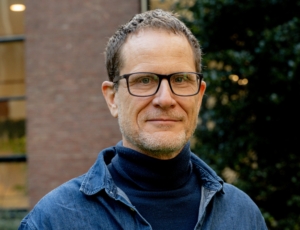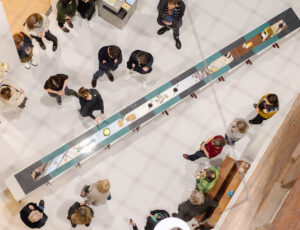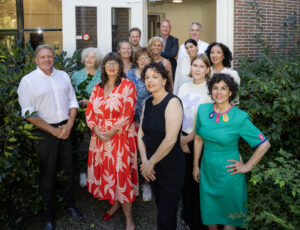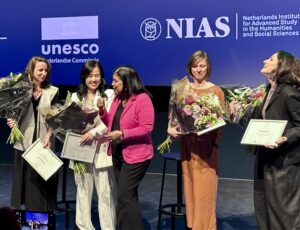Henkjan Honing, Professor of Music Cognition from the University of Amsterdam, wins the fifth Distinguished Lorentz Fellowship. Honing will explore what insights cognitive science and biology can provide on the origins of music and musicality. This will also be the topic of his interdisciplinary workshop at the Lorentz Center with the title Does Music Matter? Cognition, Biology, and the Origins of Music/ality.
Origins of Musicality
Many studies on the evolution of music concern the question of what defines music. Can birdsong, the song structure of humpback whales, a Thai elephant orchestra, or the interlocking duets of Gibbons be considered music? In trying to answer this question, it is important to separate the notions of ‘music’ and ‘musicality’. Musicality can be defined as a natural, spontaneously developing trait based on and constrained by our cognitive system, and music as a social and cultural construct based on that very musicality. However, it is still a challenge to demarcate precisely what makes up this cognitive trait we call musicality. What are the cognitive mechanisms that are essential to perceive, make and appreciate music? Only when we have identified these fundamental mechanisms are we in a position to see how these might have evolved. In other words: the study of the evolution of music cognition is conditional on a characterization of the basic mechanisms that make up musicality.
Residential Fellowship and Workshop
Henkjan Honing will spent a year on his research project as a member of the international and interdisciplinary community of scholars at NIAS. An important part of the fellowship is the international workshop at the Lorentz Center. This workshop will bring together cognition researchers from the fields of biology, musicology, neurology and psychology. He will also receive a personal prize of €10,000.
The Distinguished Lorentz Fellowship is awarded to eminent researchers who can bridge the gap between the Humanities, the Social Sciences and Natural Sciences. Successful research projects are both interdisciplinary and socially relevant. The Distinguished Lorentz Fellowship is awarded by the Chair of the NIAS-Lorentz Advisory Board in a ceremony in Wassenaar on 17 April 2013.
Previous Distinguished Lorentz Fellows have included Jan van Leeuwen (2009), Richard Gill (2010), and Johan Rooryck (2011). The DLF 2012/13 was presented to Henk Barendregt.



